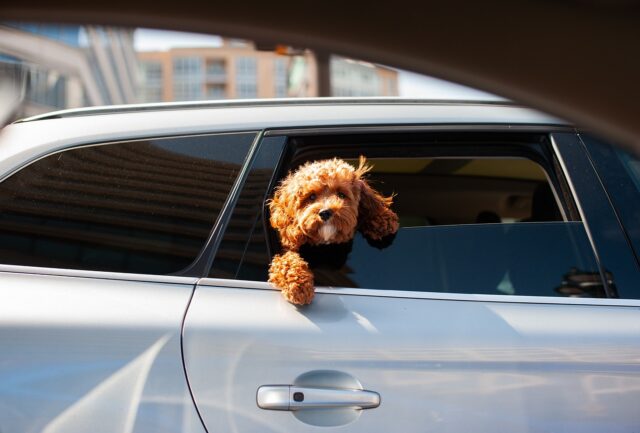If you’re a first-time dog owner looking for expert tips, you’re in the right place. Bringing a new puppy home is exciting, but it also comes with responsibilities that require preparation. From choosing the right breed to training and socializing your new furry friend, there’s a lot to consider.
That’s where Pettito Dallas and Pettito Oklahoma’s pet counselors come in. With expert guidance, they’ll not only help you find the perfect puppy but also provide personalized advice on training, nutrition, and puppy care—ensuring you’re fully prepared for your new adventure. Let Pettito’s team support you in making the best choice for your lifestyle and family. Here’s the takeaway:
First-Time Dog Owners: Important Things to Consider
The American Veterinary Medical Association (AVMA) explains that the most important thing to do before getting a dog is to explore the reasons why it would not be a good idea.
” Consider any factors that might mean a dog is not a good choice for everyone in the household such as allergies or difficulties tolerating normal dog behavior.”
Once ready for a puppy or adult dog, you should explore reputable breeders, animal shelters, and rescue organizations.
Different Breeds
Before purchasing or adopting a puppy, you should learn as much as possible about different breeds that interest you. Whether you choose an adult dog or puppy is up to you, but dogs bring plenty of responsibilities, and knowing what type of dog will fit into your lifestyle is key.
Your home and garden must be safe for your new puppy or dog, and you must have the right tools and plenty of time to care for it.
Do You Have the Time?
Puppies require significant daily attention. They need feeding, potty breaks, playtime, training, and socialization. Be prepared to dedicate several hours daily to care for your puppy’s needs.
Puppies require more than just love; they need your time, patience, and dedication to grow into healthy, happy dogs. Your new dog will live longer than 10 to 15 years, and you need to consider your lifestyle and how your life will look.
PuppyCare Guide
Raising a puppy is a rewarding experience that requires commitment and patience. Here are some things to keep in mind:
- Training: This is essential for a well-behaved dog. Allocate time each day for training sessions, which can include basic obedience commands like sit, stay, and come, as well as house training and leash manners.
- Socialization: Puppies need exposure to various people, animals, environments, and experiences to become well-adjusted adults. Plan for regular outings and socialization activities, which require time and effort. Remember that the most important time for puppy socialization is 3-14 weeks of age. Proper socialization during this period greatly impacts your dog’s temperament and behavior for the rest of his life.
- Exercise: Puppies have lots of energy and need regular exercise to stay healthy and prevent behavior problems. Daily walks, playtime, and mental stimulation are necessary to keep pups physically and mentally stimulated. Purina says that happy and healthy puppies need their fair share of exercise and that ” a good rule of thumb is that puppies should have no more than 5 minutes of exercise for each month of age, two times a day.” They add that a five-month-old puppy would need no more than 25 minutes of walking twice daily–which should be decreased in larger breeds.
- Grooming: Depending on the breed, grooming needs can vary. Most puppies may need regular brushing, baths, nail trims, and grooming appointments. Allocate time for grooming tasks to keep your puppy clean and comfortable. Grooming is also important when you examine your dog’s body from head to toe to check for lumps, skin parasites, or infections. If you have a Boxer, Bulldog, or Pug with plenty of wrinkles, you must clean these often to avoid bacterial infections.
- Supervision: Puppies are curious and can get into mischief if left unsupervised. Plan to supervise your puppy closely, especially during the initial months when they’re still learning boundaries and rules. If you parent cats, you’ll also need to teach your puppy that he’s not allowed to chase the cat.
- Patience and Consistency: Training and raising a puppy require patience and consistency. Be prepared to invest time and effort into teaching your puppy good behaviors and habits.
- Veterinary Care: “Schedule a veterinary examination to assess the health of your new companion as soon as possible to ensure it receives the appropriate vaccinations and any needed health care,” adds the AVMA.
What Redditors Say
We always turn to Redditors to see what they have to say. Puppy parents here have lots to say, as you can see. Here’s the takeaway:
“All dogs have different personalities and learn at different rates, so when you’re learning about crate training, separation anxiety, loose-leash walking, or recall and your dog isn’t responding the way the books say, stop stressing out your dog and try something new.”
“Puppies can be frustrating and difficult, but there is no such thing as a dog being stubborn. His ‘mistakes’ are your lack of training. If he poops in the house, that’s your fault for not taking him outside sooner. If he doesn’t listen to commands, that’s your fault for not making the reward to listen worth it. If he chews up your shoes, you shouldn’t have left them out. Do NOT blame your dog for being ‘naughty’; they don’t know what naughty is.” – African Thistle.
Another Redditor adds that you should not neuter too early. “Not to neuter too early. I used to always do my males or females at 6 months. Anxious dogs become dog reactive if neutered before their hormones have settled. Males need their testosterone for confidence, take it away and they’ll be more fearful. The best age to spay a female is 3 months after her first season.”
” Large breeds not before 18 months; otherwise there is a high probability of arthritis, etc, when older. Socialize as much as possible before the window of socializing closes at 16 weeks. Of course, you still need to continue afterwards. I have a pup now who was left outside and in the kitchen for the first 4.5 months with no exposure to anything. He is reactive to everyone, and even though I’ve been taking him out and about for a year now, he hasn’t changed.”
FAQ’S What You Should Know as a First-Time Dog Owner
What should I consider for a first-time dog owner?
This will be one of the best times in your life, yet one of the most challenging times if you’re bringing home a new puppy. The simple fact is that your new puppy will need daily care, veterinary care, positive training, home prep for dangerous or poisonous things that can be chewed or ingested, regular exercise & mental stimulation, healthy puppy food, regular grooming, nail trims, ear & teeth cleanings, and so much more.
Research dog breeds, read, watch videos, and speak to your veterinarian and dog trainer so that you can avoid common mistakes and train your dog correctly. Puppy care is simple, but it needs to be consistent, filled with respect and love, and include regular vet care for vaccinations.
How do you train a dog as a first-time owner?
Work with a positive dog trainer in your area or join puppy training classes so that you can work with your dog on and off leash and get individualized attention and training during the first couple of months.
Puppy training classes also help with socialization as your puppy meets other puppies and people. Working with a positive dog trainer makes puppyhood much easier because your trainer will give you good puppy training advice.
Do I need to puppy-proof my house?
Yes, you should always puppy-proof your home before bringing your puppy home. Also, check your garden for toxic plants and shrubs, and remove any chemicals your pup can get into.
Puppies are naturally curious and will explore every nook and cranny of their new surroundings. It’s essential to puppy-proof your home by securing loose wires, removing small objects they could swallow, and setting up a comfortable sleeping area with a cozy bed.
How do you prepare to be a dog owner?
Read, watch videos, and talk to other dog parents, your local veterinarian, and dog trainer. We also suggest visiting the dog park, watching different dog breeds, and watching live dog training classes to understand different breeds.
Attend local dog shows, walk your neighbor’s dog, and get involved with dogs by helping at the local rescue before getting a puppy.
Final Thoughts
Wrapping up and getting ready for your first puppy is a big deal—and it’s easier when you’ve got the right help. From picking the perfect breed to figuring out what you need before your new buddy arrives, having some guidance makes all the difference. That’s where Pettito Dallas and Pettito Oklahoma come in. Their pet counselors know their stuff and can walk you through everything—from what to expect to how to prep. Ready to dive into puppy life? Hit up Pettito’s pet counselors and get all the info you need to bring your new pup home like a pro!
Funny Differences Between Male & Female French Bulldogs
https://www.youtube.com/watch?v=H_8VxzCK4uY
Video Credit: Griffin Frenchie






